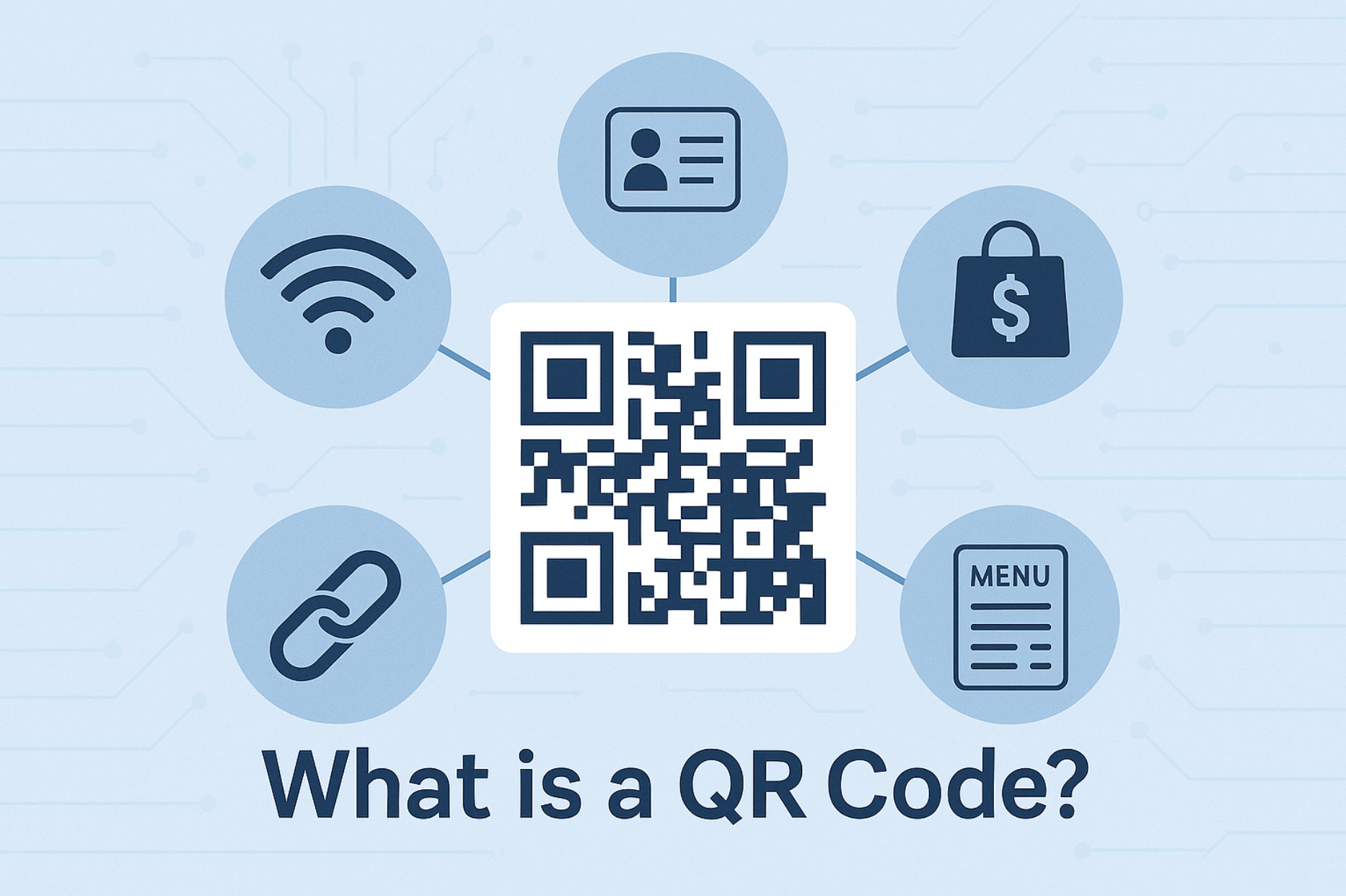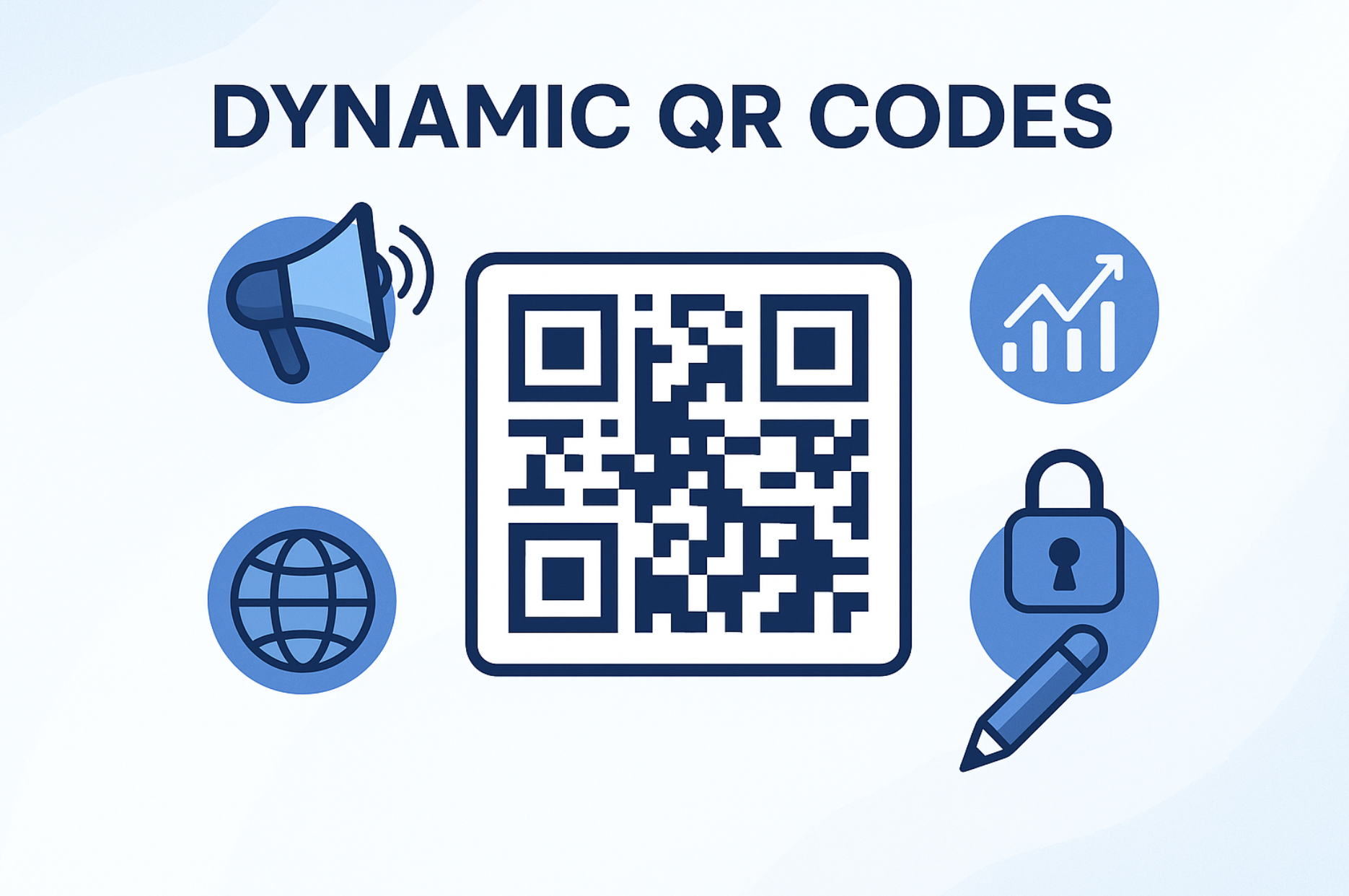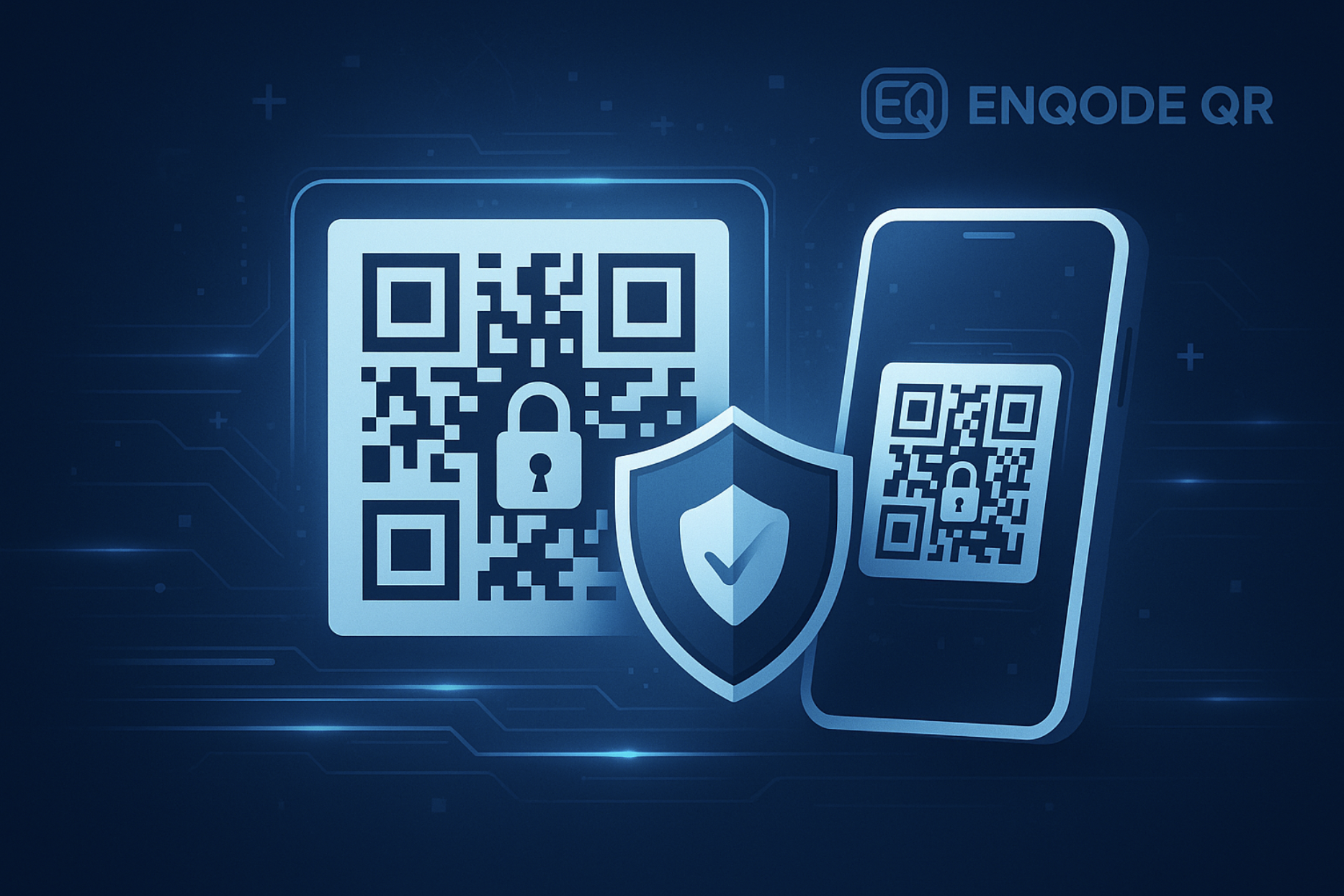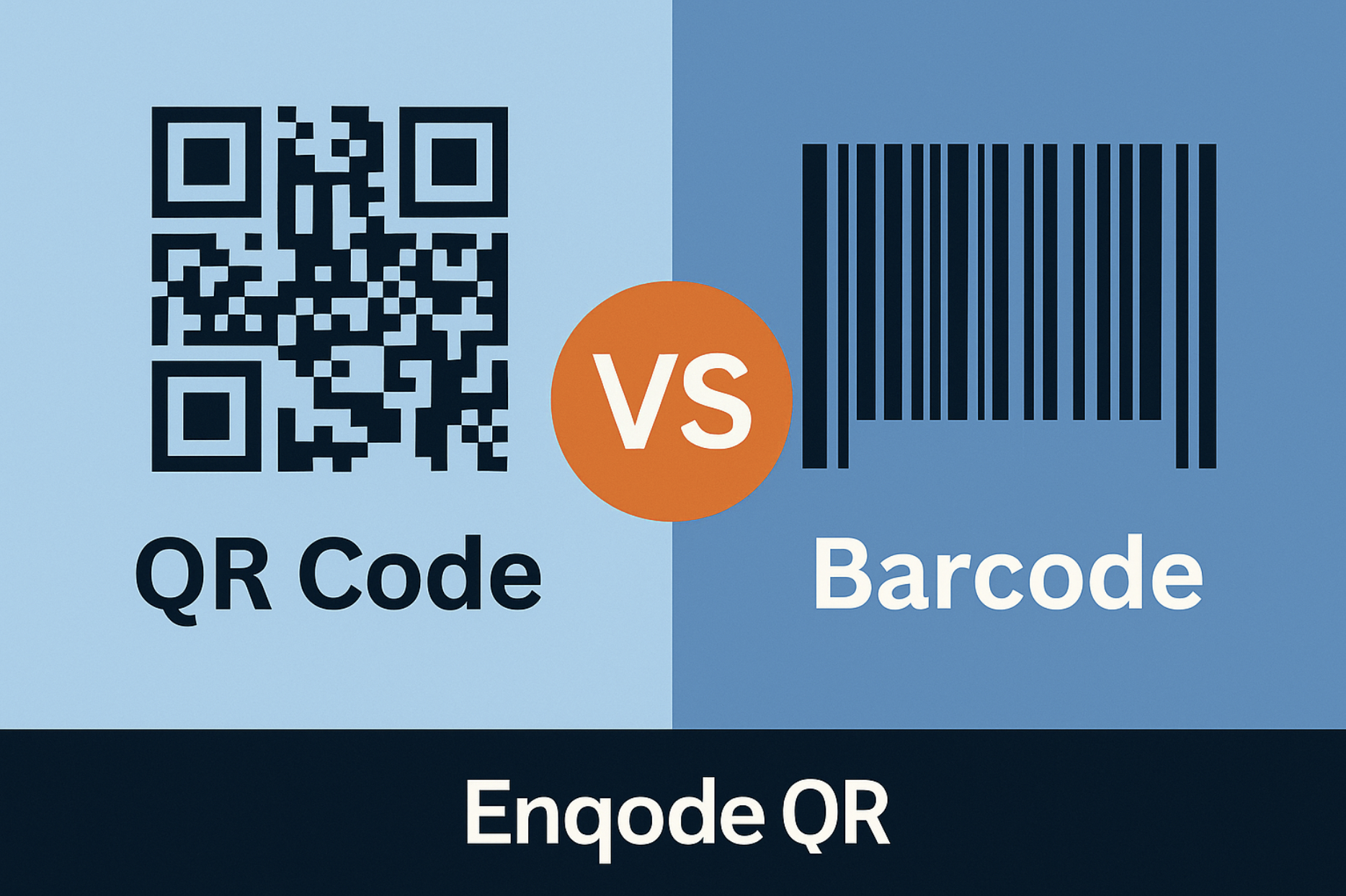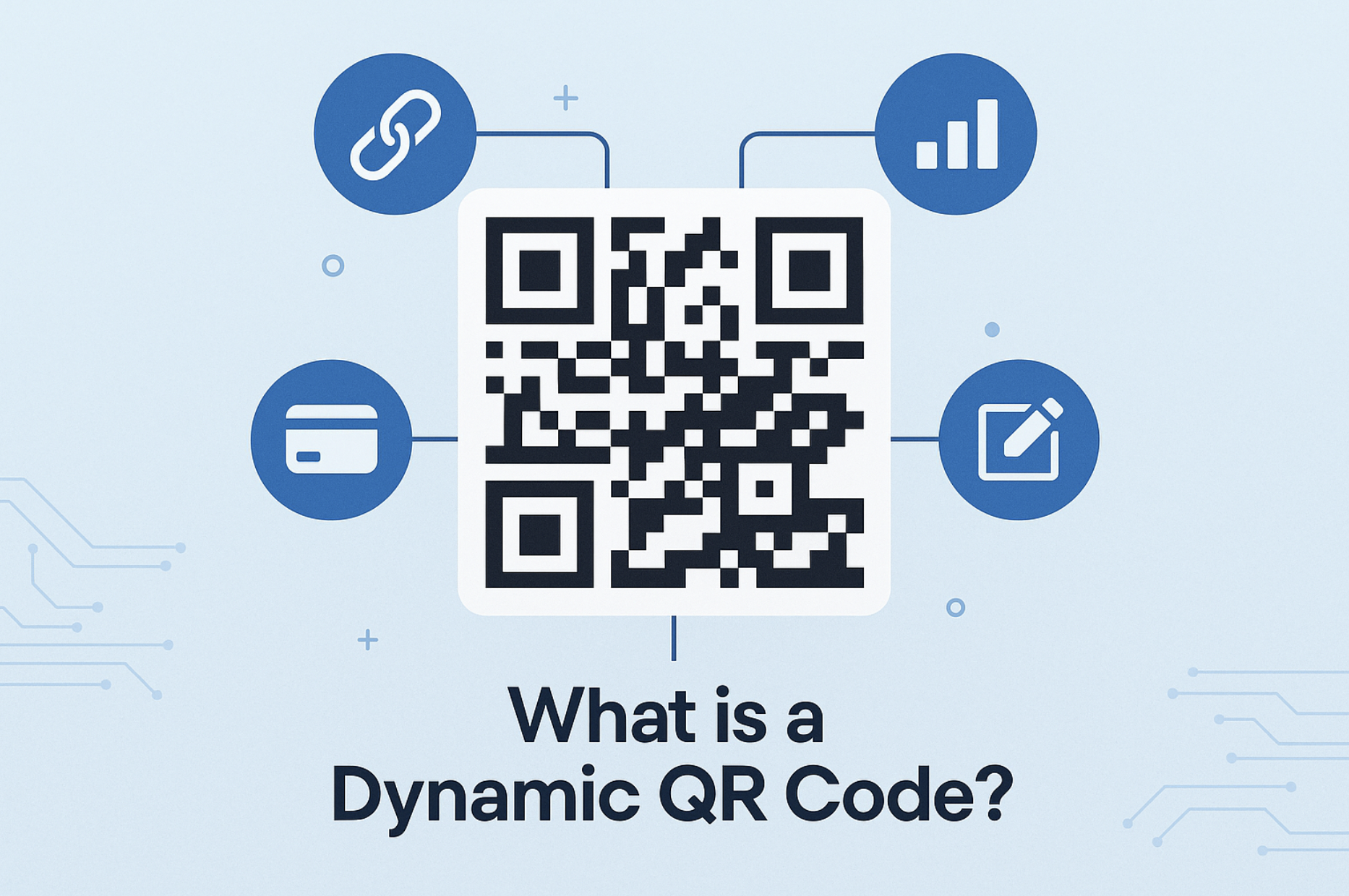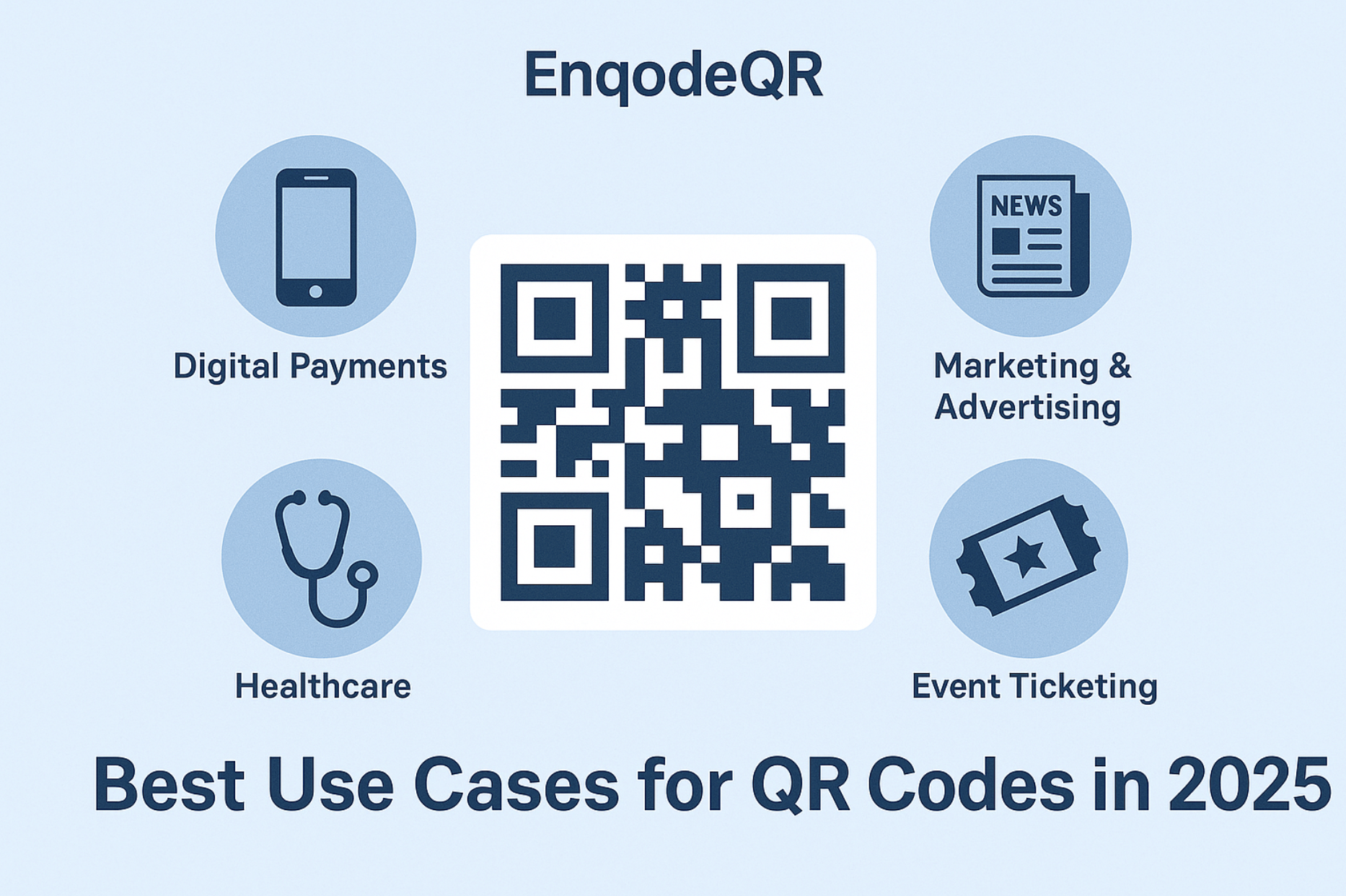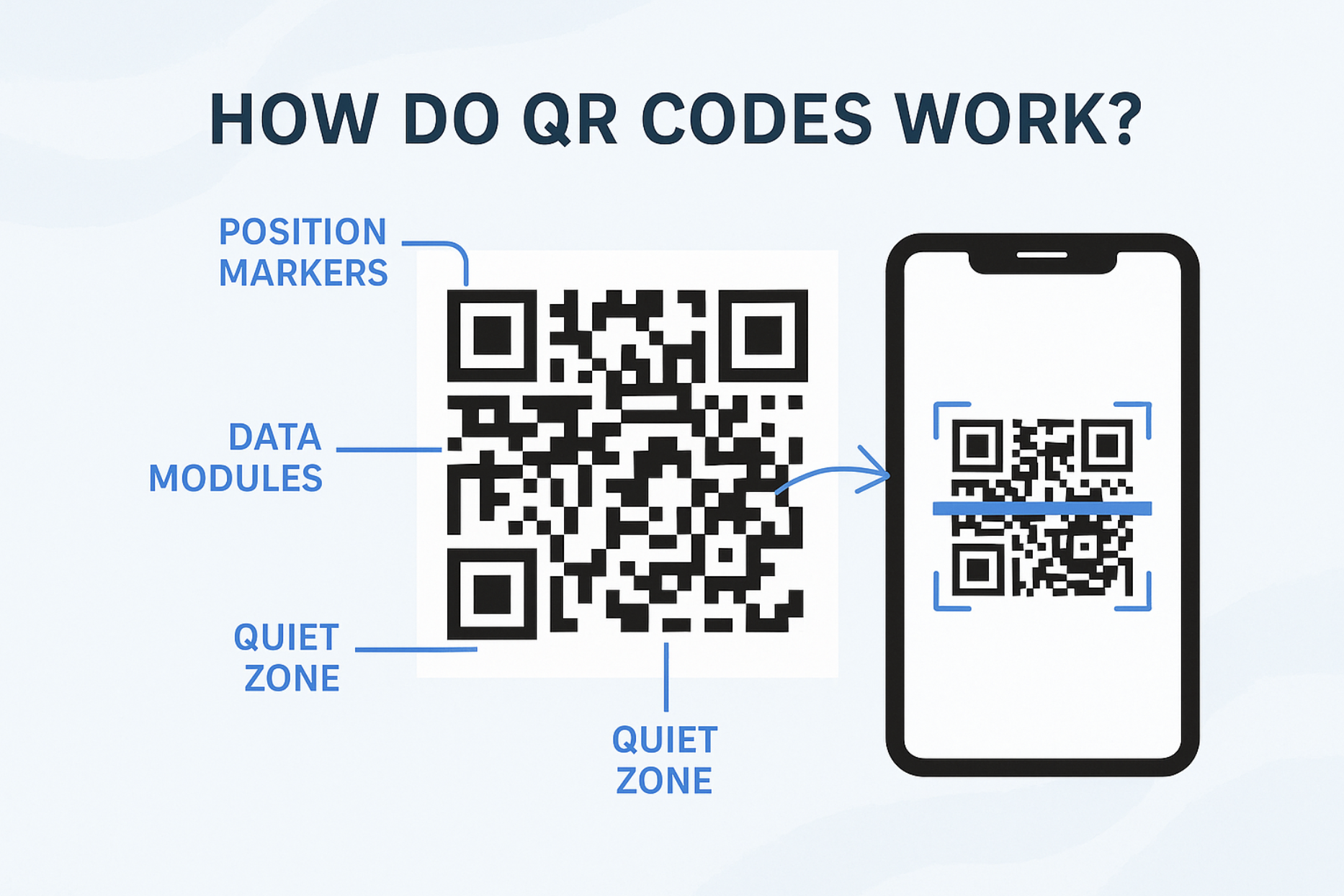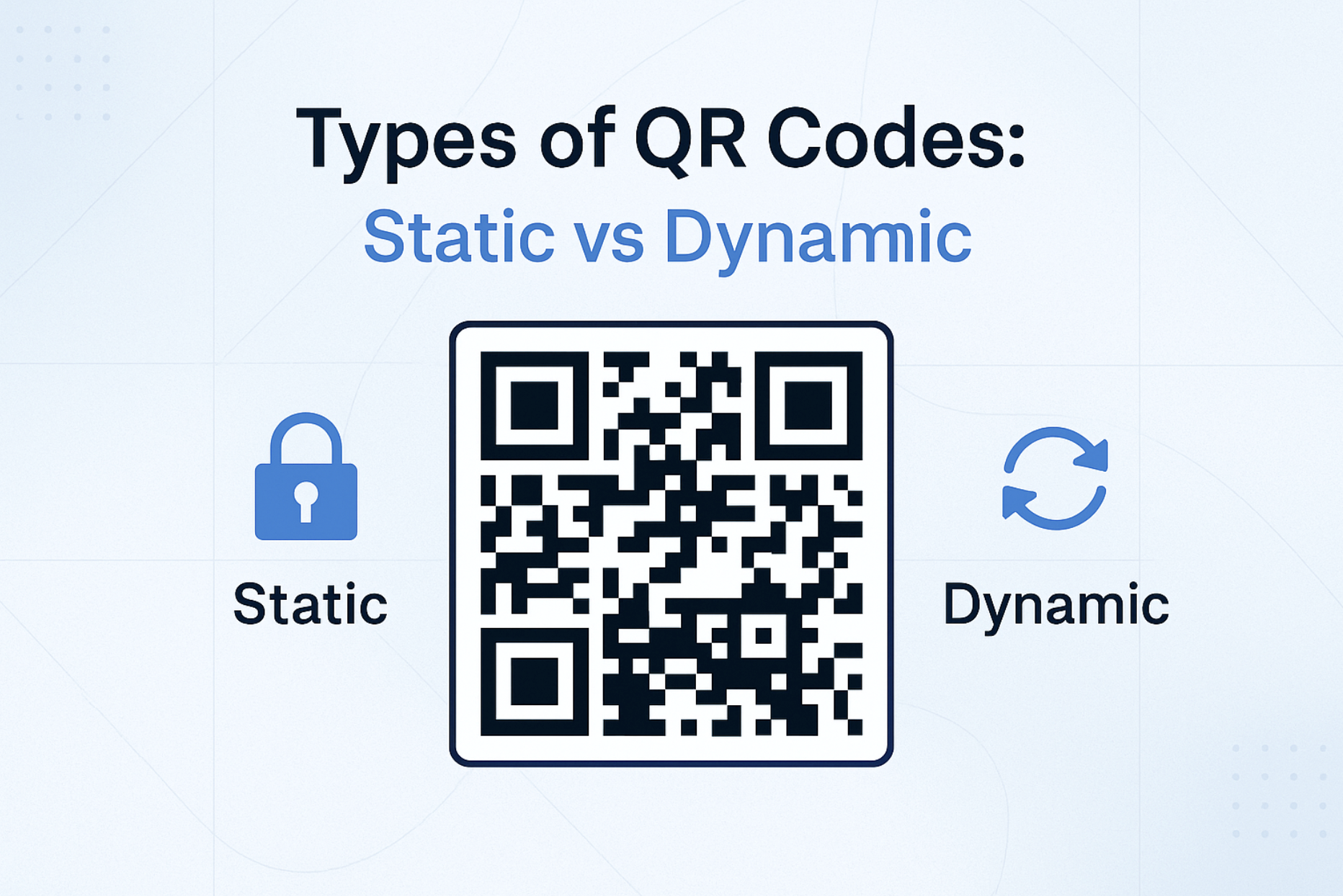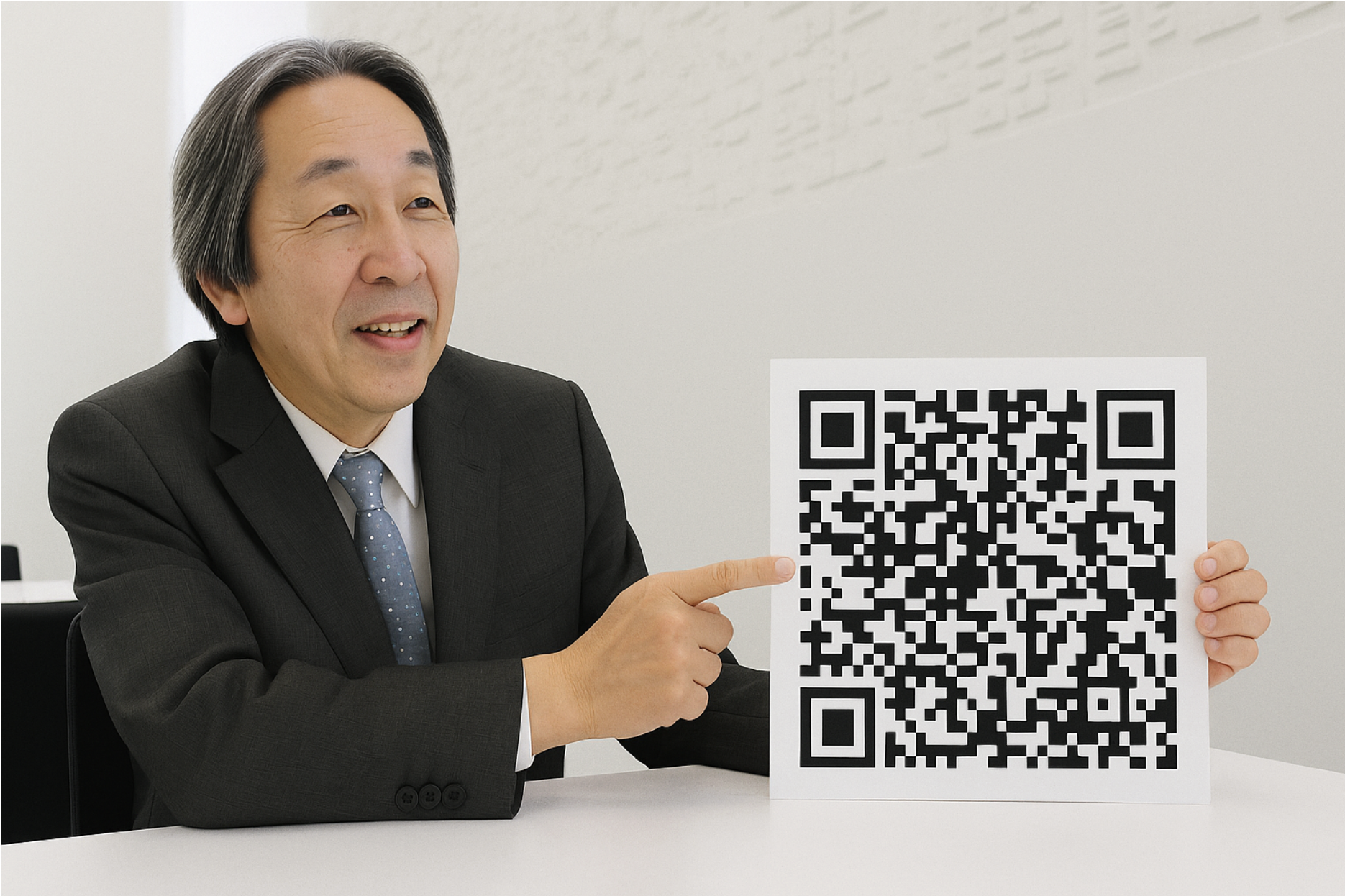Quick Summary
A QR code is a two-dimensional barcode that stores information and can be scanned instantly using smartphones. This comprehensive guide explains what QR codes are, how they work, their real-world applications, and why they remain essential technology in 2025 for businesses and consumers alike.
Table of Contents
Introduction
You've seen them on restaurant tables, product labels, business cards, and even billboards. But have you ever wondered what exactly a QR code is, how it works, and why it's used almost everywhere today?
In this beginner-friendly guide, we'll break down the fundamentals of QR codes - how they function, where they're used, and why they're more relevant in 2025 than ever before.
What is a QR Code?
A QR code (short for Quick Response code) is a two-dimensional barcode that stores information such as URLs, contact details, Wi-Fi credentials, or text. Unlike traditional barcodes that can only be scanned horizontally, QR codes can be read both horizontally and vertically, allowing them to store much more data in a compact space.
Invented in 1994 by Masahiro Hara of Denso Wave, the QR code was initially developed for tracking automotive parts on assembly lines. Fast forward to today, and QR codes are used globally across industries for everything from contactless payments to digital marketing.
How Do QR Codes Work?
QR codes work by encoding data into a visual pattern made of black squares and white spaces arranged in a square grid. When a QR code is scanned using a smartphone or QR scanner, the encoded data is extracted using a built-in decoding algorithm.
Here's a quick breakdown of what happens:
- Detection: The QR scanner detects the code's position markers.
- Analysis: It analyzes the pattern of black and white modules.
- Decoding: The decoder converts these patterns into readable data.
- Action: The data is then acted upon (e.g., opening a URL or connecting to Wi-Fi).
For a deeper dive into the technical aspects, check out our detailed guide on how QR codes work behind the scenes.
QR Code vs. Barcode: What's the Difference?
| Feature | Barcode (1D) | QR Code (2D) |
|---|---|---|
| Shape | Horizontal lines | Square matrix |
| Scan Direction | One direction only | 360° multi-directional |
| Data Capacity | ~20 characters | Up to 7,000+ characters |
| Storage Type | Numeric only | Numeric, text, binary |
| Error Recovery | Minimal | Up to 30% error correction |
In short: QR codes are faster, smarter, and more versatile than traditional barcodes. For a comprehensive comparison, read our detailed analysis of QR codes vs barcodes.
Types of QR Codes (Quick Overview)
QR codes come in two primary types:
- Static QR Codes
- Fixed content that cannot be changed
- Cannot be edited once created
- Best for simple or permanent information
- Dynamic QR Codes
- Editable destination URL
- Enable tracking & analytics
- Great for marketing, campaigns, business use
Want a deeper dive? Check out our comprehensive guide: Types of QR Codes: Static vs. Dynamic.
Real-World Uses of QR Codes
QR codes are used across industries and daily life. Here are some practical applications:
- Contactless payments (UPI, PayPal, Google Pay)
- Restaurant menus and ordering systems
- Event check-ins and digital tickets
- Product packaging for authenticity and info
- Business cards with vCard info
- Wi-Fi sharing at offices or cafes
- Billboards and print ads linking to landing pages
Explore more creative applications in our guide to the best use cases for QR codes in 2025.
Why QR Codes Are Still Relevant in 2025
QR codes gained explosive popularity during the COVID-19 pandemic, and they haven't slowed down since. Today, they continue to be essential due to:
- Mobile-first world where smartphones are everywhere
- Increasing demand for contactless, digital-first experiences
- Advanced QR capabilities like analytics, dynamic redirection, and AI-generated designs
- Ease of use and zero app dependency for most devices
Learn about security considerations in our guide on QR code safety and security risks.
Built on Innovation: Powered by Enqode QR
At Enqode QR, we believe QR codes aren't just tech gimmicks - they're smart, scalable tools for modern businesses. Our platform offers:
- Dynamic QR code generation
- Editable links
- Advanced tracking & analytics
- Custom branding options
Whether you're a marketer, entrepreneur, or creator, our tools help you generate QR codes that do more. Discover the advantages of using dynamic QR codes for marketing.
Frequently Asked Questions
What does QR code stand for?
QR code stands for "Quick Response" code, named for its ability to be decoded rapidly compared to traditional barcodes. The name reflects its primary advantage: speed of scanning and data retrieval.
Can QR codes store different types of information?
Yes, QR codes can store various types of data including URLs, plain text, contact information (vCards), Wi-Fi credentials, email addresses, phone numbers, and even small files. The storage capacity depends on the data type and QR code version used.
Are QR codes free to use?
Basic QR code generation is typically free, but advanced features like analytics, dynamic editing, and custom branding often require paid plans. Static QR codes are usually free to create and use indefinitely.
Do QR codes expire?
Static QR codes never expire as they contain fixed data. However, dynamic QR codes may expire if the service provider account is cancelled or if the destination URL becomes unavailable.
Why are QR codes becoming more popular now?
QR codes surged in popularity due to COVID-19 contactless needs, widespread smartphone adoption, and improved camera technology. They offer a perfect bridge between physical and digital experiences, making them essential for modern business operations.
Conclusion
A QR code is more than a pattern of black and white squares - it's a fast, flexible bridge between the physical and digital worlds. From payments and promotions to smart contactless experiences, QR codes have proven their value across industries.
Understanding what QR codes are and how they work opens up countless possibilities for businesses and individuals alike. Whether you're looking to streamline operations, enhance customer experiences, or create innovative marketing campaigns, QR codes provide the technology foundation you need.
And with platforms like Enqode QR, you have everything you need to harness the full potential of QR technology. Ready to create your own? Explore Enqode QR's platform today and discover how dynamic QR codes can transform your business.


